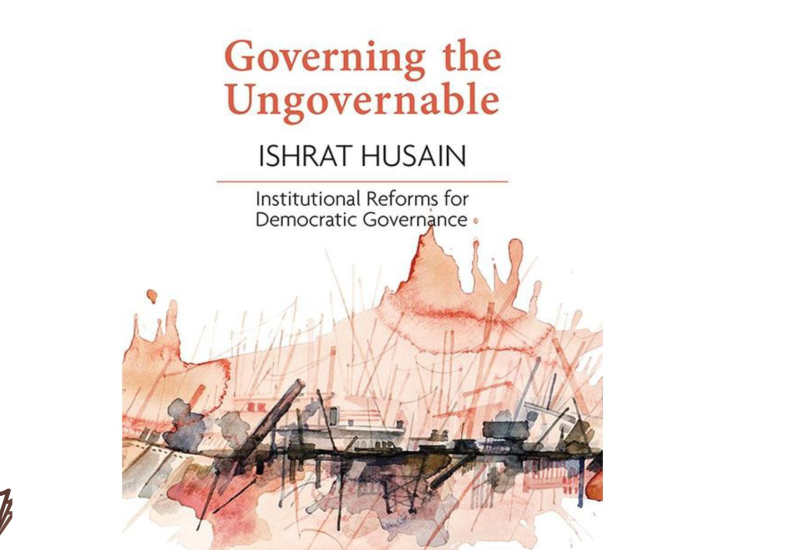The bureaucratization of higher education in Pakistan and its sinister implications
Excessive regulations, red-tapism and highly bureaucratic system of governance are reigning supreme in the institutes of higher education in Pakistan. This phenomenon has not only impinged on the autonomous status of the universities but also ruined efficiency and performance. In fact, there are ingenious ways to deal with excessive bureaucracy. Sincere efforts were not made to circumvent red tape in academia. This blog post is aimed at providing necessary insight to the academic leaders, government functionaries and policymakers to extend its reform agenda to the higher education sector in Pakistan.
Introduction
Max Weber, the German sociologist, visualized bureaucracy as the most efficient way in which the affairs of the state can be managed and professional undertakings can be organized. He fancied that systematic processes and organized hierarchies are essential to maintain order, maximize efficiency, and eliminate favouritism. In stark contrast to what, he gestated, the higher education landscape is characterized by excessive layers of control, the unwieldy system of administrative overloads, mounds of useless paperwork and excessively complicated administrative procedures.
Bureaucracy is an indispensable and integral part of the management of any reasonably large public sector organization. But, ironically, academics, in this part of the world, are drowning under the excessive burden of bureaucracy that has inundated academia. The toilsome statutory requirements, the time-consuming processes, and procedural delays have seeped into the very system of academic business in the universities. This eventually, hampers the process of knowledge generation, knowledge dissemination and knowledge diffusion.
Compromised autonomy
Universities are autonomous entities, theoretically, but these are far from being autonomous, in the practical sense of the contemporary academic world. Redtapism, centralization of authority, and procedural knots, the essential attributes of bureaucracy are thriving on the campuses. The reams of officialdom, intricate by-laws and bureaucratic mindset make it increasingly unmanageable to get any work done smoothly and efficiently. The cost has always been exorbitant. This trend is censoriously compromising universities’ autonomy and academic freedom.
Typology
Infringement of excessive regulations in the academic as well as administrative affairs of the universities can be experienced from multiple fronts. These can broadly be categorized into two main accounts. Internal and external bureaucracy. On the external front, too, there are three separate sets of bureaucracies engaged in the official business of the universities. These mainly include i) The provincial bureaucracy; ii) The federal bureaucracy, and iii) The growing bureaucracy of HEC. In this blog, first of all, the internal bureaucratic forces are briefly discussed:
Internal front
The role of unbridled bureaucracy in the internal affairs of the universities can be visualized from multiple dimensions. Each university and each management system in the universities are having own level and layers of bureaucracy reigning in its internal governance. The inherent red-tapism hampers its smooth functioning, causing an inadvertent delay in the processes and ultimately degenerating efficiency in academia. The reams of bureaucratic approach entangled in the universities’ internal governance can be approached from different angles such as academics, administration, finances, establishment/HR, statuary affairs, developmental work, procurement, research and students’ affairs. These are briefly discussed here:
Academics
The academics, even in technologically advanced countries such as the US and UK are frustrated by the level of bureaucratic hassling encountered by the management and increasing paperwork carried out by the academics in their own settings. Academics in our universities have to deal with unwarranted administrative chores besides dealing with useless file work. With each passing day, the heaps of paperwork are getting multiplied. For academic staff, this means that their core job of teaching and research are placed on the back burner as they have less and less time for the students and research.
I have personally experienced scores of academics, particularly, the heads of the departments in our universities, time and again, expressing their strong reservations about the mammoth administrative tasks and useless paperwork, they are subjected to deal with. This trend of over-bureaucratized academics, teaching and research is not novel in the higher education set up and with the passage of time everyone is getting used to it rather than defying it. In fact, in an era when everything is getting digitalized, this trend is, even more, suffocating for academia, germinating a systemic distrust among academics and prolific researchers.
To put it more succinctly, whenever, academic leaders in the public sector envisage launching a new set of academic programs or think of changing the existing modules, they will, literally, require months of paperwork and a series of meetings to bring that exercise to some fruitation. Its favourable approval is linked with an incredibly cumbersome process, routing through various academic committees and statutory bodies such as departmental academic committee, graduate studies committee, Board of Study, Board of Faculty and finally Academic Council.
In the event, the things move at a relatively faster pace, it takes roughly six months, on the average, to get approval for the undergraduate level academic program. Whereas, in case of the postgraduate programs or even undergraduate programs, where the higher strata of regulatory control or accrediting body at the federal level are involved such as HEC, PM&DC and PNC, it takes years for its final approval. These procedural knots, over-regulation and procedural delays connote academics feeling disinterested to take initiatives to offer new programs with the mere spirit of conviction but have to overcome yet multiple layers of bureaucratic barricades. Besides, they have no other option but to deliver ‘outdated knowledge but approved’ rather than ‘updated but unapproved’ one.
The upcoming blog, “Is the red tape undermining higher education in Pakistan?” is taking up the other dimensions of the hyper-bureaucratic higher education landscape in the country.

















